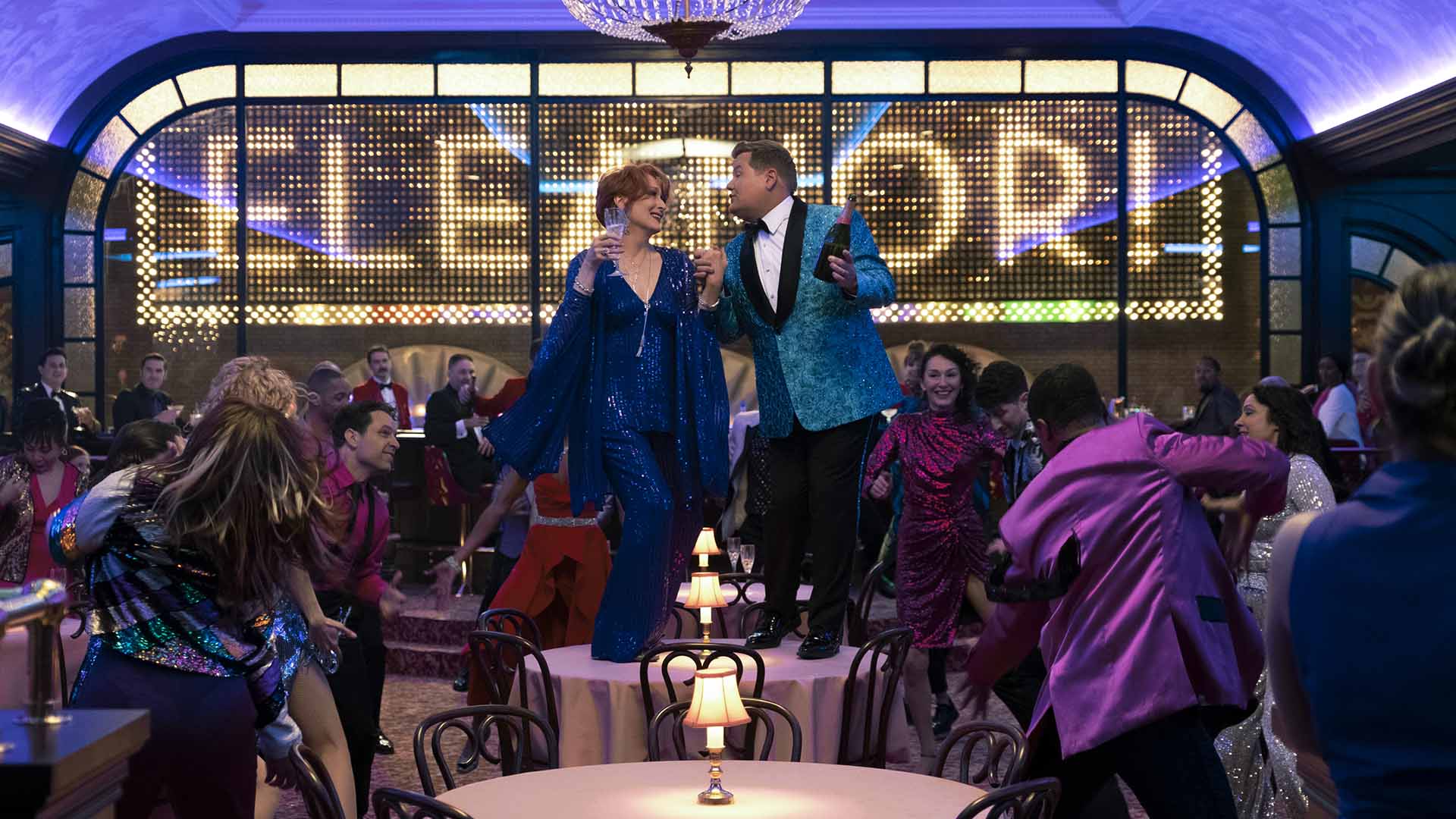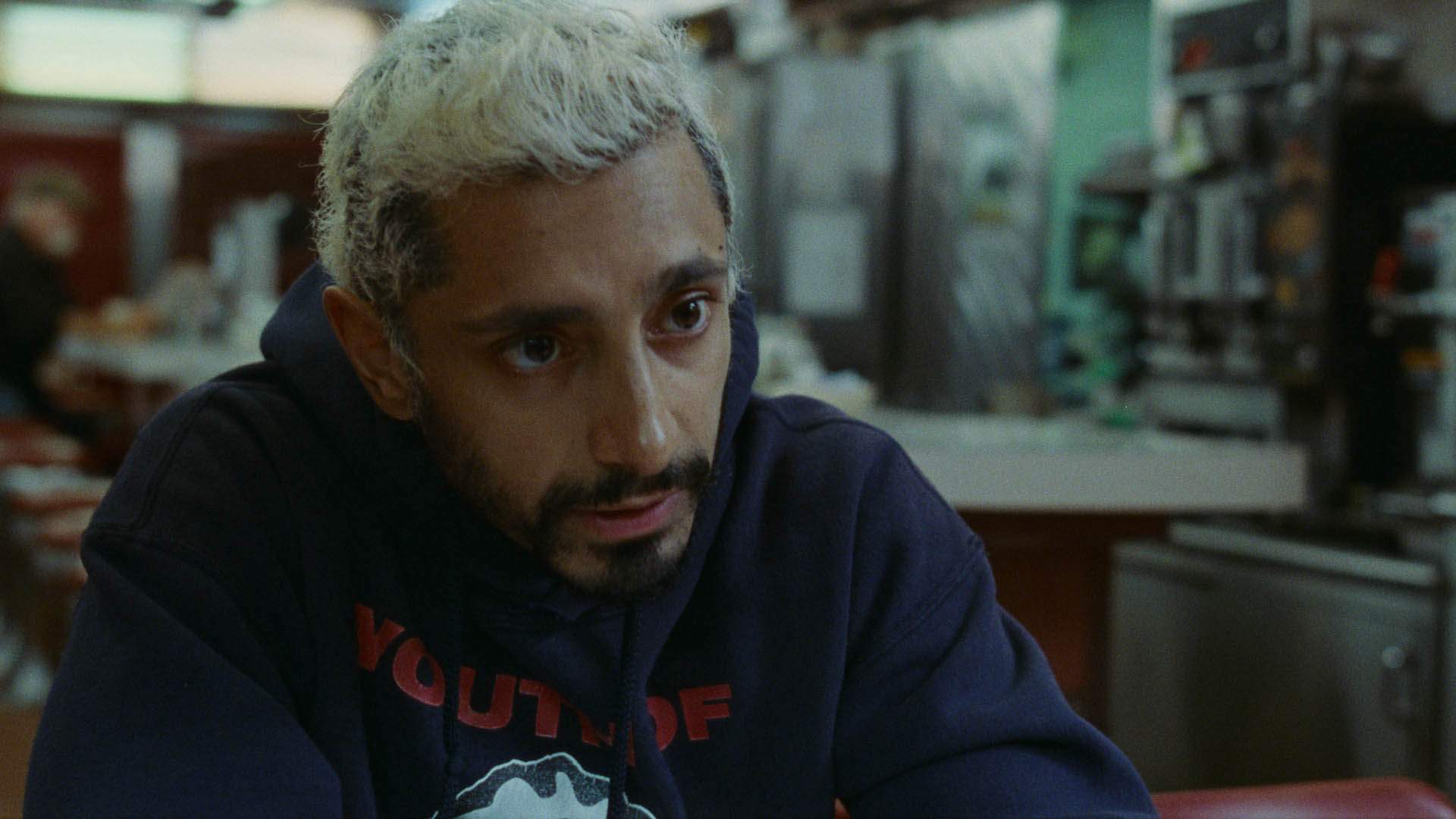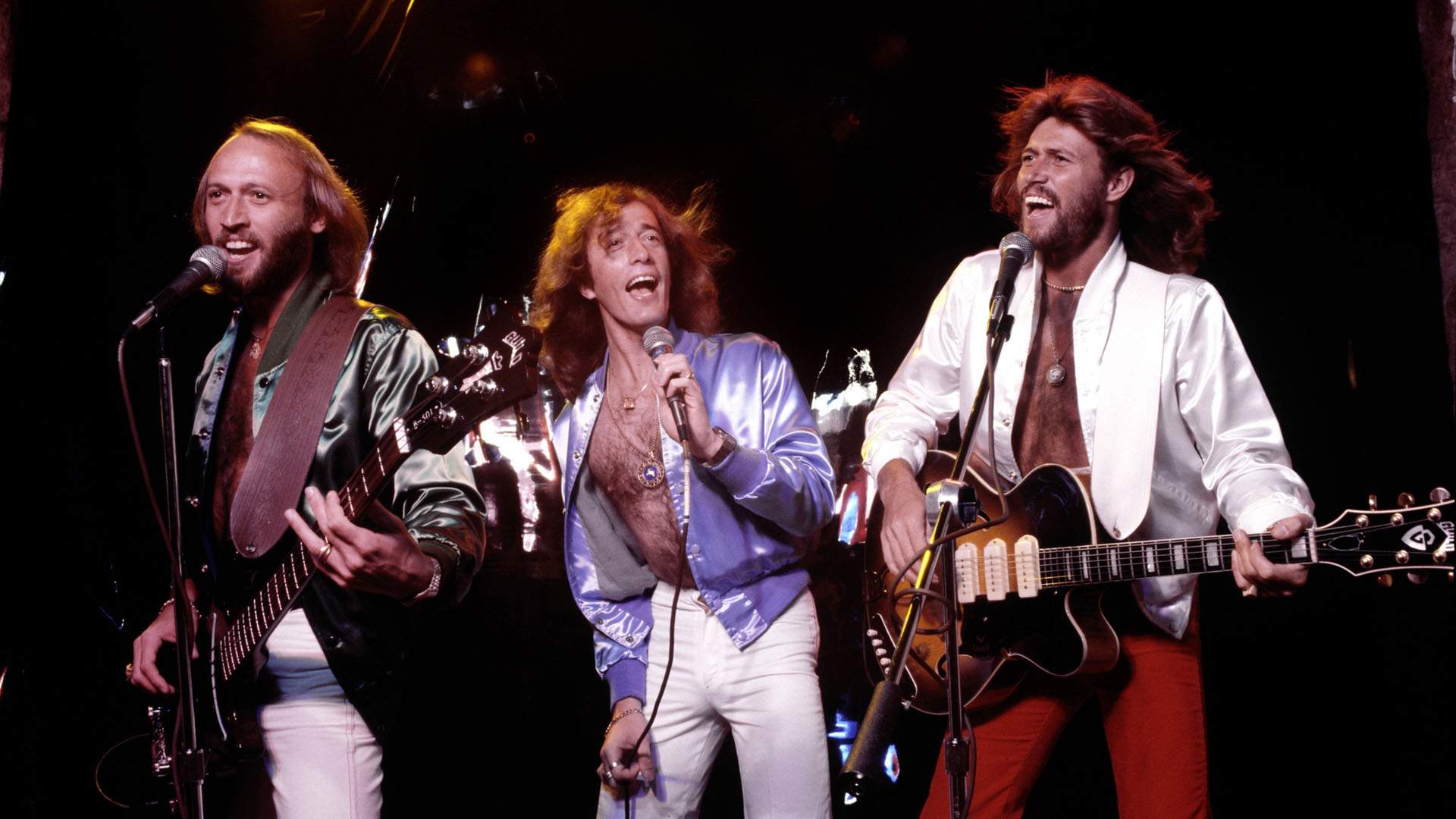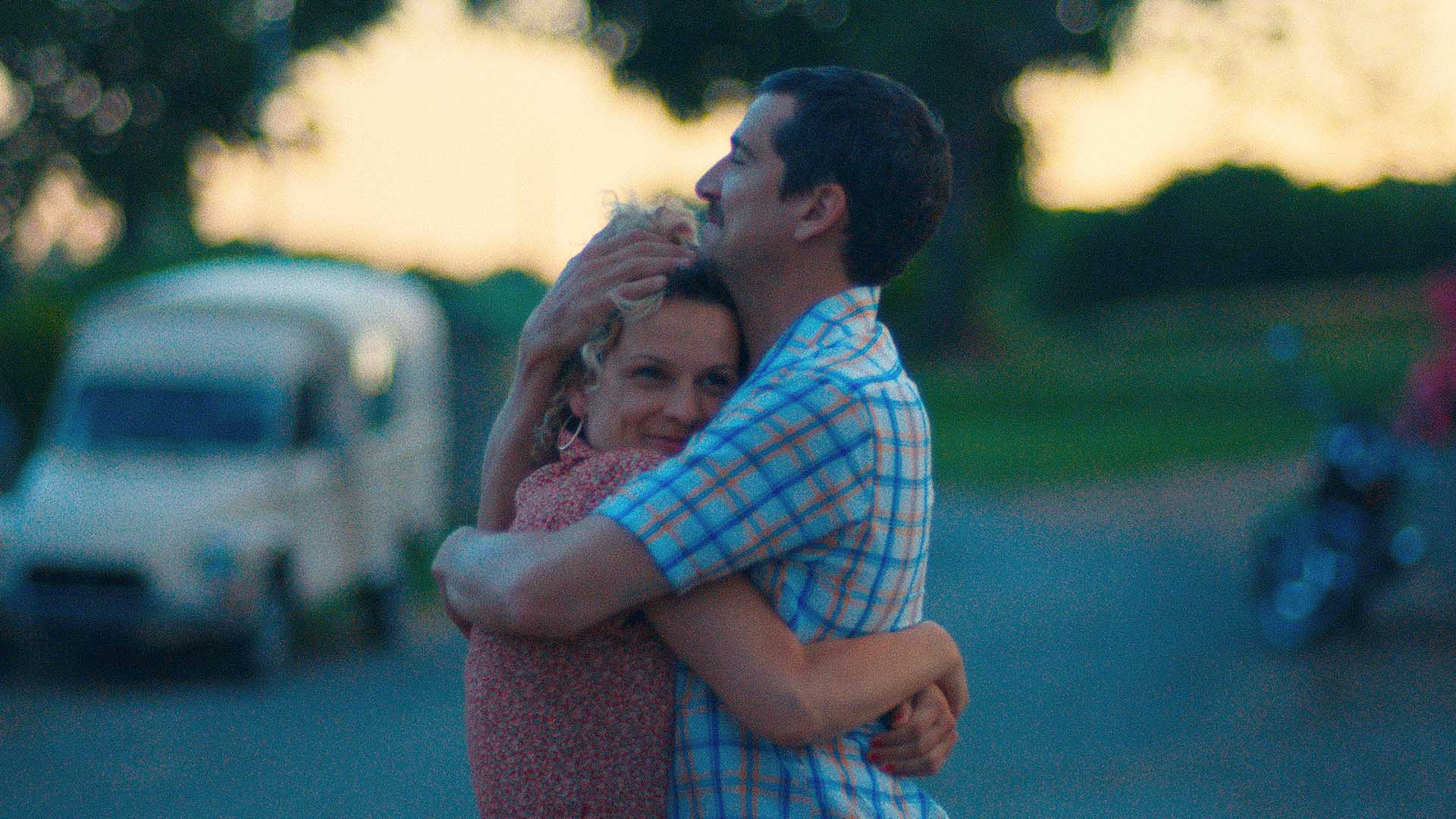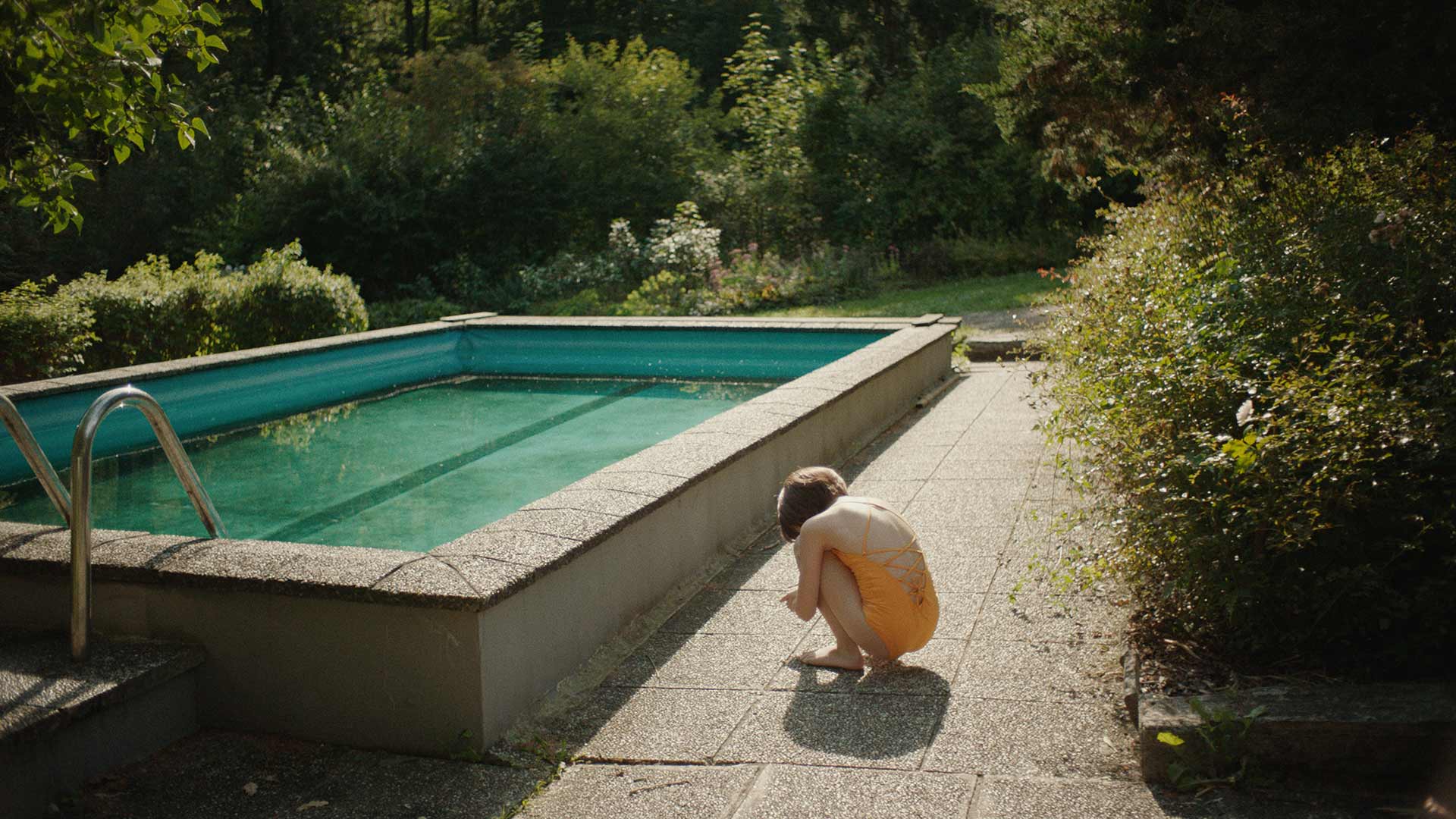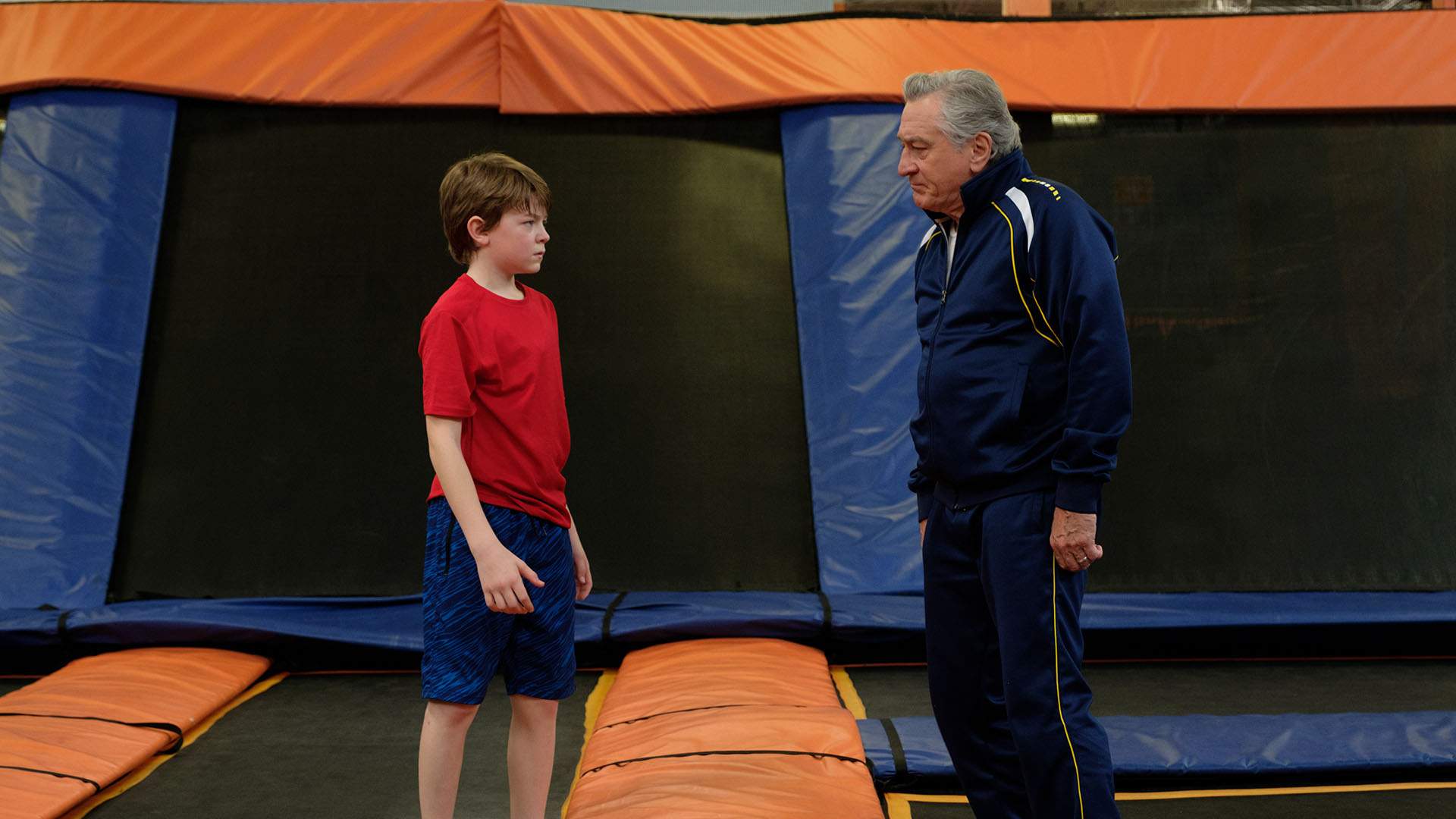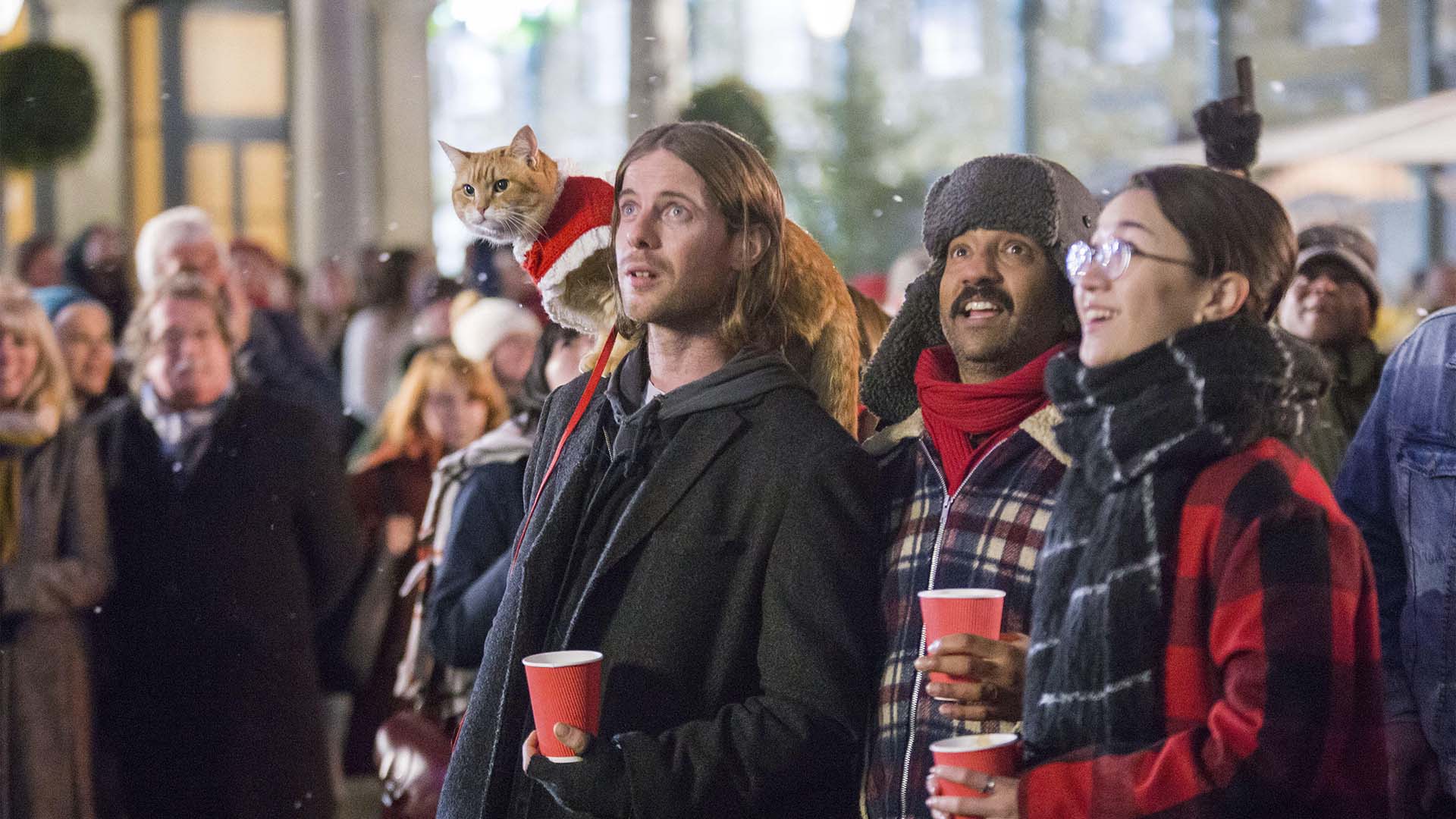The New Movies You Can Watch at Melbourne Cinemas From December 3
Head to the flicks to see a fascinating new documentary about The Bee Gees, a stage-to-screen musical and a controversial sci-fi drama.
It has finally happened, Melburnians. After two prolonged periods spent empty this year, with projectors silent, theatres bare and the smell of popcorn fading, Melbourne picture palaces are back in business.
During COVID-19 lockdowns, no one was short on things to watch, of course. In fact, you probably feel like you've streamed every movie ever made over the past three months, including new releases, comedies, music documentaries, Studio Ghibli's animated fare and Nicolas Cage-starring flicks. But, even if you've spent all your time of late glued to your small screen, we're betting you just can't wait to sit in a darkened room and soak up the splendour of the bigger version. Thankfully, plenty of new films are hitting cinemas so that you can do just that — and we've rounded up, watched and reviewed everything on offer from this week.
THE BEE GEES: HOW CAN YOU MEND A BROKEN HEART
It starts with the disco beats of 'Stayin' Alive' echoing through the cinema. Although he doesn't ever phrase it quite so bluntly, it ends with surviving Gibb brother Barry wistfully and wishfully applying that song's title to his siblings and fellow Bee Gees members Robin and Maurice. In-between, career-spanning documentary The Bee Gees: How Can You Mend a Broken Heart steps through all of the band's ups and downs — from the group's humble beginnings when its members were growing up during the British-born trio's childhood stint in Brisbane, to the rollercoaster ride that saw them top the music world several times but also endure time both apart and off the charts. As tales of fame, fortune and trying to survive go, this one has everything, including brotherly rivalries, tabloid-fodder weddings, shock splits and comebacks, and drugs and the stereotypical celebrity lifestyle. It also spans a public call for their music, and the disco genre they were virtually synonymous with in the late 70s thanks to the mega-hit Saturday Night Fever soundtrack, to be literally blasted into smithereens. Through candid recent chats with Barry, as well as the use of archival interviews with Robin and Maurice before their deaths, director Frank Marshall (Arachnophobia, Alive) details it all.
From early success 'Spicks and Specks' (aka the song now used as a theme tune for the TV quiz show of the same name) through to the post-Saturday Night Fever single 'Tragedy' — and yes, featuring the track that gives the movie its title as well — How Can You Mend a Broken Heart surveys the band's enormous contribution to music, of course. Getting a Bee Gees' song stuck in your head, or several, is part of the experience of watching. So is instantly imagining how tunes such as Diana Ross' 'Chain Reaction' and Dolly Parton and Kenny Rogers' 'Islands in the Stream' would've sounded if the Gibbs had sung as well as penned them in their second life as hit songwriters for other acts. But, whether you've cut a rug to 'You Should Be Dancing' before or you've only ever paid attention to their music in passing, what resonates in this thorough documentary is its candour and its detail, especially when it is focusing on Barry, Robin and Maurice's brotherly relationship and their artistry. Less successful are the intertwined interviews with other musicians, including Noel Gallagher noting that working with family can be a blessing and a curse and Chris Martin spouting mumbo jumbo about how tracks just come to musos out of the air, which always feel like superfluous padding in a fascinating and involving doco that definitely doesn't need it.

SOUND OF METAL
When Sound of Metal begins just as its title intimates, it does so with the banging and clashing of drummer Ruben Stone (Riz Ahmed, Venom) as his arms flail above his chosen instrument. He's playing a gig with his girlfriend and bandmate Lou (Olivia Cooke, Ready Player One), and he's caught up in the rattling and clattering as her guttural voice and thrashing guitar offers the pitch-perfect accompaniment. But for viewers listening along, it doesn't quite echo the way it should. For the bleached-blonde, tattooed, shirtless and sweaty Ruben, that's the case, too. Sound of Metal's expert and exacting sound design mimics his experience, as his hearing fades rapidly and traumatically over the course of a few short days — a scenario that no one wants, let alone a musician with more that a few magazine covers to his band's name, who motors between shows in the cosy Airstream he lives in with his other half and is about to embark upon a new tour. That's not all the film is about, though. Ruben's ability to listen to the world around him begins to dip out quickly and early, leaving him struggling; however, it's how he grapples with the abrupt change, and with being forced to sit with his own company without a constant onslaught of aural interruptions distracting him from his thoughts, that the movie is most interested in.
With apologies to cinema's blockbusters (which usually monopolise the sound categories come Oscars time), no other feature this year mixes its acoustics together in as stunning and stirring a fashion, and also bakes every single noise heard into its script, and its protagonist's journey, as well. As Ruben takes up residence at a rural community for addicts who are deaf, it expresses Ruben's distress at his situation as immersively as possible; 'intense' is the word for Sound of Metal, but it's also a term that doesn't completely do the movie justice. Making his feature directing debut, and co-writing another screenplay with filmmaker Derek Cianfrance as he did with 2012's The Place Beyond the Pines, Darius Marder turns his picture into a masterful exploration and skilled evocation of the kind of anxiety that's drummed deep into a person's darkest recesses. Viewers don't just hear what Ruben hears, but also feel what he feels as he rages and rallies against a twist of fate that he so vehemently doesn't want yet has to live with. While the film specifically depicts hearing loss, it's so detailed and empathetic in conveying Ruben's shock, denial, anger and hard-fought process of adjustment that it also proves an astute rendering of illness and impairment in general. That's Ahmed's recent niche, as also seen in this year's Berlinale-premiering Mogul Mowgli, and his powerfully physicalised performance shows the fight and fortitude required for Ruben to learn to cope.
Sound of Metal is screening in select cinemas in Melbourne, and is also available to stream via Amazon Prime Video. Read our full review.

THE PROM
A word of warning to filmmakers eager to make the next big on-screen musical: cast James Corden at your peril. It may now seem like a lifetime ago that Cats proved a gobsmacking catastrophe, but that 2019 movie's horrors are impossible to shake — and while Corden's latest, The Prom, thankfully doesn't resort to repeating the word 'jellicle' over and over again to try to convince the world that it means something, it still follows in the feline-focused flick's paw prints as this year's all-singing, all-dancing misfire. The two films' common star is grating and relies upon gratuitous overacting in both features. He's hardly alone in bombing and flailing, though. In The Prom's case, a 2018 Broadway success with an important message about acceptance and being true to one's self has been transformed into an over-long star vehicle, as well as a movie that can't see past its sequin-studded pageantry and smug attitude to actually practise what it preaches. Its continually, needlessly and irritatingly circling cinematography captures its struggles perfectly, because The Prom is too caught up in shiny things, recognisable faces and disposable songs to let everything that should matter, including its main statement, have any real impact.
Miscast from the get-go, Corden plays Barry, a Broadway veteran playing second fiddle to multi-Tony-winning drama diva Dee Dee (Meryl Streep, Little Women) in Eleanor!, a new production about former US First Lady Eleanor Roosevelt. Initially, the pair is on top of the world after the show's opening night — but then the reviews start piling in and piling on. Distraught from the critical savaging as they drown their sorrows with perennial chorus girl Angie (Nicole Kidman, The Undoing) and Juilliard-trained actor-turned-sitcom lead-turned bartender Trent (Andrew Rannells, The Boys in the Band), they concoct a plan to get back in the showbiz industry's good graces. Scrolling through Twitter, Angie spies a news story about Indiana teenager Emma (feature debutant Jo Ellen Pellman), whose high school has just completely cancelled the prom because she wanted to bring her girlfriend. As quick as a burst of confetti, Barry, Dee Dee, Trent and Angie are on a Godspell tour bus to America's midwest to rally against this injustice and whip themselves up some flattering publicity. In the screenplay written by Bob Martin and Chad Beguelin, both of whom worked on the original stage production, this is all meant to be a joke: that fading, has-been and never-were celebrities shallowly and calculatingly try to use one young woman's horrific plight for their own gain, that is. But The Prom likes the gag so much that it misguidedly decides that favouring stars over substance is the best approach in general.
The Prom is screening in select cinemas, and will also be available to stream via Netflix from Friday, December 11. Read our full review.

THE TROUBLE WITH BEING BORN
For decades across the page and screen, science fiction has pondered just where artificial intelligence might take humanity, in ways both positive and negative. The field of science has as well, making some of those possibilities a reality already — however, as The Trouble with Being Born makes clear, we shouldn't just be wondering what AI can do for us, but also what it will and does reflect about our nature. This Berlinale-premiering feature from Austrian director Sandra Wollner asks a plethora of questions, all of them difficult and provocative, about the role of robots in our future. It explores the possibility of becoming dependent on android substitutes for human contact, including in acceptable and abhorrent situations, and examines the emotional toll for both sides of the relationship. With a steely look that's purposefully disconcerting, an opening scene that aims to assault and disrupt the audience's senses to leave them interrogating and intricately observing everything in front of them, and a willingness to pose a severe worst-case scenario (by implication, rather than gratuitous detail), The Trouble with Being Born aims to make its audience uncomfortable while probing these thorny ideas. That it initially focuses on a ten-year-old android girl called Eli who is deployed by her flesh-and-blood owner as a stand-in for his runaway daughter speaks volumes.
In Australia, The Trouble with Being Born will always be marked by controversy. It's the movie that the Melbourne International Film Festival scheduled for its 2020 online-only event, then pulled from its lineup after a backlash caused by an article in The Age, which quoted concerns by forensic psychologists specialising in child abuse cases who had either not watched the film in full or at all. But Wollner's feature has taken great pains to approach its subject carefully and sensitively — its child star, Lena Watson, goes by a pseudonym, and is disguised in the movie by under a silicone face mask and via CGI — and to engage viewers in an unnerving but intelligent series of questions about its topic and scenarios. While it rarely makes for straightforward viewing, it's also one of the year's essential films. It is cinema's place to challenge, and to examine aspects of life that are tough and unpleasant; making her second full-length movie after 2016's The Impossible Picture, Wollner accepts and embraces that task. She explores identity and memory as well, and the role in the latter in shaping the former. And, she adds a film both distinctive and important to the growing list of works (see also: AI, Her, Ex Machina, Blade Runner and Blade Runner 2049) that ponder what the creation and use of AI says about humanity.

THE GODFATHER CODA: THE DEATH OF MICHAEL CORLEONE
The Godfather saga might eventually gain a new chapter. In this time of constant remakes, reimaginings and decades-later sequels, absolutely nothing can be discounted, after all. But The Godfather Coda: The Death of Michael Corleone isn't a new addition to the gangster epic. Rather, it's a recut version of 1990's The Godfather Part III, aka the least acclaimed movie in the Francis Ford Coppola-directed trilogy. As his multiple versions of Apocalypse Now have shown over the years, the filmmaker has a penchant for tinkering with his past work. We've all looked back and wished we could do something over gain, so he's doing just that (last year, he not only released another new version of his Vietnam War masterpiece, but of The Cotton Club as well). Here, by renaming the revised third Godfather movie Coda, he's repositioning as well as re-editing, though. Coppola is telling the world that he sees this feature less as a second sequel and more as an epilogue to the first two exceptional Godfather movies — a message that might seen a bit cheeky, especially given how much this new iteration has in common structurally with the first film, but encourages viewers to give The Death of Michael Corleone more distance from its two Oscar Best Picture-winning predecessors than its has otherwise been afforded.
Both upon its release three decades ago and again now, Coppola's third Godfather film doesn't match his first two. It suffers from Robert Duvall's absence, after the studio wouldn't pay him what he asked for to return a third time — and also from Sofia Coppola's inexperienced presence, with the On the Rocks director co-starring as Mary Corleone, daughter to Al Pacino's titular Michael, after Winona Ryder dropped out just before shooting started. But it's still an interesting, ambitious and mostly engaging movie, endeavouring to chart the struggle its eponymous figure endures as he tries to divest himself from illicit dealings and go legit. If you've ever heard the oft-quoted line "just when I thought I was out, they pull me back in", you'll know that achieving this plan isn't easy. Also on the elder Coppola and writer Mario Puzo's minds here: how that back-and-forth struggle between the life one knows and the better future they've been striving for ripples down through later generations, as seen through the inclusion of Andy Garcia as Michael's hotheaded nephew. The changes made to turn The Godfather Part III into The Godfather Coda: The Death of Michael Corleone are minor, other than the astute moving of one pivotal scene from partway through to the film's beginnings; however, as intended, it welcomely forces a revisit and re-evaluation with fresh eyes.

IN THE NAME OF THE LAND
In We'll End Up Together, French filmmaker and actor Guillaume Canet directed a sequel to his friendship-driven drama Little White Lies, this time ruminating on his characters' choices and struggles years latter. In La Belle Époque, he played the man behind a company that lets anyone pay to recreate the place and time of their choosing, whether to enjoy a life they didn't get to live, temporarily try to correct past wrongs or revel in happier memories. His third release to reach Australian cinemas this year, In the Name of the Land is a vastly different film — but it too is about someone grappling with his chosen path and wondering what might've been. Here, Canet steps into the shoes of Pierre Jarjeau, who returns to his dad's (Rufus, Amelie) modest farm in 1979 after a stint on a vast Wyoming cattle ranch and, with a 25-year-old's hope for the future, instantly agrees to take over the family property. Fast-forward to the mid to late 90s, when the majority of the movie takes place, and Pierre is saddled with debt and trouble. He's still repaying his father, the price he earns for his produce just keeps dropping and, despite his wife Claire's (Veerle Baetens, The Broken Circle Breakdown) disapproval, he's certain that expanding and taking on bigger loans is the only way forward.
Pierre's plan requires building a coop to house 20,000 chickens — livestock he doesn't currently farm — and getting into bed with a giant agriculture company to do so. First-time feature writer/director Edouard Bergeon bases In the Name of the Land on his own father's story, and it's a grim one, as every move Pierre makes seems to place the Jarjeaus in a worse situation with ever-increasing stress and higher stakes. Given that this is a personal tale and topic for the filmmaker, it's hardly surprising that he draws such nuanced and authentic performances from Canet, Batens and Rufus, and from young actor Anthony Bajon (The Prayer), who is virtually playing the director's on-screen surrogate. The prominence given to the gorgeously shot landscape, including golden and green fields that stretch as far as the eye can see, isn't the least bit astonishing either. And, neither is this solemn but passionate movie's unshakeable condemnation of the current state of French agriculture, and of the very real toll that the push towards corporations and mass production is taking on those who dedicate their life to working the land.

OLIVER SACKS: HIS OWN LIFE
Three decades ago, one of neurologist and writer Oliver Sacks' books was turned into a film. Drawn from his time in the late 60s treating patients with encephalitis lethargica — people catatonic thanks to a pandemic that spread around the world between 1915–26, and still hospitalised across all those intervening years — Awakenings brought an astonishing true tale to the screen, with Robin Williams playing Sacks' on-screen surrogate and Robert De Niro co-starring as one of the afflicted. The work that led to the text, and the fact that it was adapted into a movie, are both significant achievements. But Sacks' life was filled with many remarkable acts, deeds and successes. He passed away in 2015 aged 82; however, documentary Oliver Sacks: His Own Life assembles a wealth of footage shot as he was facing his end and looking back on his ups and downs. Days after he was diagnosed with terminal cancer earlier that year, he penned an article for The New York Times, called My Own Life, about learning the news — and that same year he published an autobiography, On the Move: A Life — so sharing his thoughts to camera, and stepping through the ebbs and flows of his life that brought him to that junction, was a natural extension of a reflective process he was already going through.
There's much to look back on; Sacks might've dedicated his medical career to getting inside the minds of others, and to advancing the understanding of many conditions that affect the brain, but his own life could inspire a comparable wealth of material. Consequently, filmmaker Ric Burns (Made for Each Other: A History of the Bond Between Humans and Dogs) has the job of synthesising the abundance of incidents and details from his subject's eight-decade existence into a thorough and accessible 111-minute film — a considerable feat, but one he masters. Whether you're familiar with Sachs and have read his popular books, you only know him via Awakenings or you're a complete newcomer to his tale, His Own Life unfurls not just the requisite biographical data, but a true sense of spending time in Sachs' inimitable, always-curious, incessantly-thoughtful company. That, and his outlook as he was forced to face the end of his days, are the gifts this doco gives audiences. Sachs' friends and colleagues all pop up as talking heads, offering their recollections and thoughts as well, with Burns structuring his picture in a straightforward fashion — but there's nothing standard about the man at the touching movie's centre, or everything that comprised his life.

A CHRISTMAS GIFT FROM BOB
The true tale behind 2016's A Street Cat Named Bob and now this year's A Christmas Gift From Bob is undeniably heartwarming, especially for anyone who has welcomed a pet — and a friendly feline at that — into their lives and been forever altered for the better. Homeless and struggling to kick a heroin habit, James Bowen finds the companionship and purpose he needs in a ginger kitty that wanders off the streets and into his flat. A firm bond is forged, and much changes for both the two-and four-legged sides of the relationship. That's the story that the first movie charted. This sequel now picks up after Bowen has become a literary success from turning his kinship with Bob into a bestselling book, although he's still busking, selling The Big Issue and working hard to get by. The struggle with both movies, however, is just how sappy and soppy everything feels at every single moment. It really shouldn't take much to be moved by Bowen and Bob's tale, but these films push the sentiment so forcefully, completely failing to trust that viewers will connect with the story without an overdose of mawkishness. It was true of A Street Cat Named Bob, and it still rings accurate in A Christmas Gift From Bob — which, as the moniker makes plain, is set during the festive season for an extra stint of heartstring-pulling.
Life may have improved for Bowen (Luke Treadaway, Unbroken) thanks to Bob, but it doesn't take much to put the pair in a precarious situation. A Christmas Gift From Bob's big dramas come in the form of animal control, who threaten to take the cute cat away after they see him out with his owner in the chilly winter weather. That this happens just as Bob needs veterinary attention adds another layer, as does the easily spiral Bowen navigates due to living on a financial knife's edge. In a nicely drawn performance, Treadaway gives his role more depth than either director Charles Martin Smith or writer Garry Jenkins ask for. Alas, that the former's resume also spans Air Bud, Dolphin Tale and its sequel, and the slushy A Dog's Way Home, is telling — as is the fact that the latter returns after penning the lacklustre first Bob film. There's no point in A Christmas Gift From Bob where it isn't advising its audience how to feel via its dialogue, warm colour scheme and sugarcoating in general. There are zero moments that recognise that Bowen's plight doesn't need to be brought to the screen in such an overt and schmaltzy manner, either, and that both his experiences with Bob and in general are inherently affecting. And, even if you're the biggest feline fancier there is, not even a famous cat (playing himself no less) can patch over the movie's troubles, although its makers clearly think otherwise.

HOW DO YOU KNOW CHRIS?
The sounds of You Am I's 'Berlin Chair' fill its opening moments. An Ivy and the Big Apples-era Spiderbait t-shirt is given by one person to another. The Sydney Olympics are mentioned, too. Accordingly, if Australian film How Do You Know Chris? didn't inform its audience that it was set in 2000, they'd be able to hazard a very firm guess anyway. Spilling out a plethora of details, then asking viewers to piece them together: that's this Melbourne-shot and -set drama's approach. Its characters are in the same situation, after the eponymous Chris (Luke Cook, Chilling Adventures of Sabrina) invites a disparate group of people to his apartment for a party. He gives them all different reasons for the shindig, including telling his boss Shane (Stephen Carracher, The Doctor Blake Mysteries) that it's costumed. He hires a waiter to serve beverages, to keep everyone socially lubricated. But, making them wait, drink, chat, get to know each other if they don't and work through long-held grudges if they're already acquainted — with commerce student Emi (Tatiana Quaresma, another The Doctor Blake Mysteries alumnus) falling into the first category, and high school classmates Justin (Jacob Machin, The Twilight Zone), Claire (Ellen Grimshaw, Bloom) and Blucker (Dan Haberfield, Wrong Kind of Black) in the second — Luke then takes his time to show up himself.
Other guests are present, such as couple Ray (Lee Mason, Miss Fisher and the Crypt of Tears) and Dot (Lynn Gilmartin, The Very Excellent Mr Dundee), plus the kohl-eyed Christal (Rachel Kim Cross, Mr Inbetween) — all with different connections to the chameleonic Luke, which get teased out over the course of the film. As a result, first-time feature director Ashley Harris and screenwriter Zachary Perez (a fellow debutant) ask a considerable amount of their cast, with the party attendees' awkward chatter and the general uncertainty they feel about the event driving the majority of the movie. As for why everyone is there, that's a tense puzzle for How Do You Know Chris?'s on-screen figures, but not its viewers. While there's weightiness to the idea of someone taking stock of their existence by inviting key people who've made a mark on their life to the one gathering, and to the big reveal when Luke's guests discover the purpose of the shindig, the movie nonetheless feels overstretched. Still, for its first two-thirds, this low-budget Aussie effort makes the most of its main players, the suspense they're saddled with and the movie's apartment-set cinematography.

THE WAR WITH GRANDPA
There is very little that's impressive about The War with Grandpa, which is based on Robert Kimmel Smith's children's novel of the same name, other than its ability to repeatedly remind viewers that its adult leads have been in much, much better movies. The film not only nods to the Robert De Niro-starring Taxi Driver, but reunites him with his The Deer Hunter costar Christopher Walken. It has Uma Thurman playing the nagging mother of a black bob-wearing teenager called Mia (Decker, not Wallace, but the elbowing in Pulp Fiction's direction can't be accidental). These inclusions are meant to satiate adult audience members either watching along with their children, or just watching in general. Really, though, they just stress that this'll never rank among the standouts on De Niro, Walken or Thurman's resumes. It's unfair to compare The War with Grandpa with any of their career highlights, of course, but aside from its recognisable cast, this family-friendly comedy about a kid who overreacts when his grandfather moves in and takes over his bedroom doesn't boast anything other than overplayed and overly formulaic inanity. It's supposed to garner laughs from all ages; however, older viewers are unlikely to even crack a smile and kids 100-percent deserve more.
After widower Ed (De Niro) has trouble with a supermarket self-checkout, accidentally becomes a shoplifter and causes a scene, his daughter Sally (Thurman) decides that it's time for him to live with her family instead of on his own. But her son Peter (Oakes Fegley, The Goldfinch) has to relocate to the attic to accommodate the household's new member and, really just because the movie's premise wouldn't work otherwise, he's brattishly unhappy about the change to the point of acting out. He declares war, in fact, even going as far as penning a letter announcing his plans — and soon grandpa and grandson are both engaged in a battle of escalating pranks over turf. While De Niro has plenty of forgettable features to his name (see also: this year's The Comeback Trail), he's also taken enough roles that just require him to be silly that his casting in films like this is no longer anywhere near funny. And director Tim Hill has a long history working on SpongeBob SquarePants, including helming this year's entertaining The SpongeBob Movie: Sponge on the Run, so it is easy to see why he was drawn to the project — this storyline would've likely worked well in an animated format, set under the sea, and with that zany critter facing off against a nemesis — but there's not even the slightest trace of engaging goofiness here.
If you're wondering what else is currently screening around Melbourne, we've also picked the 12 best flicks that started gracing the city's silver screens when indoor cinemas were given the green light to reopen. When outdoor cinemas relaunched before that, we outlined the films showing under the stars, too. And, we've run through all the pictures that opened in the city on November 12, November 19 and November 26 as well.
You can also read our full reviews of The Personal History of David Copperfield, Waves, The King of Staten Island, Babyteeth, Deerskin, Peninsula, Les Misérables, Bill & Ted Face the Music, An American Pickle, On the Rocks, Antebellum, Kajillionaire, The Craft: Legacy, Never Rarely Sometimes Always, Radioactive, Brazen Hussies, Freaky, Mank, Monsoon and Ellie and Abbie (and Ellie's Dead Aunt), American Utopia, Possessor, Misbehaviour and Happiest Season, all of which have been showing in Melbourne since cinemas reopened.
And, you can check out our rundowns of the new films that released in other cities over the past few months — on July 2, July 9, July 16, July 23 and July 30; August 6, August 13, August 20 and August 27; September 3, September 10, September 17 and September 24; October 1, October 8, October 15, October 22 and October 29; and November 5 — as a number of those movies are now showing in Melbourne as well.
